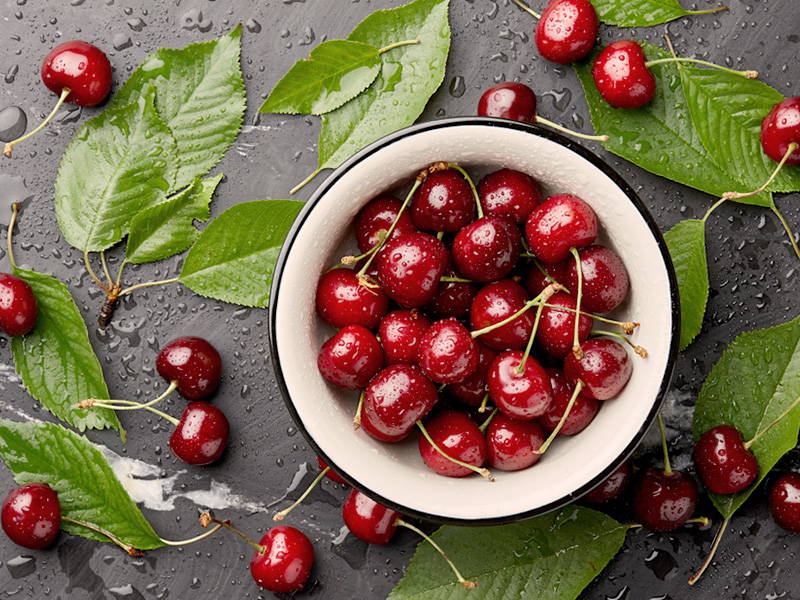
The 7 Best Natural Anti-Inflammatory Foods
Key Takeaways
- There are many diseases that can promote inflammation in the body: cardiovascular, metabolic, cancer, diabetes, obesity, and high blood pressure are just a few.
- By including certain foods in your diet, you can prevent inflammation from being produced, which can help resolve diseases and joint pain.
- There are also foods to avoid which can encourage inflammation production in the body.
- By eating the right foods and learning which to avoid, you can improve your health and reduce painful inflammation.
Inflammation in the body is actually a good thing until it’s not. Your body’s natural reaction to certain events creates an inflammatory response to defend and heal.
There are several ways inflammation can start in the body, including:
- Trauma from an injury
- Allergy response
- Stress
- Infection
- Radiation
Typically, once the trauma or infection has healed, the inflammation recedes. However, those who suffer from chronic inflammation continue to experience pain and stiffness. This can happen in the joints, ligaments, and tendons.

Most of the time, inflammation is treated with over-the-counter and/or prescription medications. Non-steroidal anti-inflammatory drugs (NSAIDs) may relieve symptoms, but they have known side effects when taken long term:
- Stomach ulcers
- Osteoporosis
- Dermatitis
- Increase rates of infection
- Depression
- Hyperglycemia
- Weight gain
- Inability for wounds to heal properly
- Mood change
- High blood pressure
- Edema (fluid retention)
- Adrenal crisis
For some, the side effects can be as bad or worse than the underlying causes of inflammation. Rather than suffer from the pain and inflammation plus potential side effects, there is another option.
Foods, herbs, and spices have been used in Chinese and Ayurvedic medicine for centuries to combat illnesses and improve health. If you or someone you know is struggling with inflammation, eating natural anti-inflammatory foods and herbs can help.
Here are some of the best natural anti-inflammatory sources you can include in your diet for relief.
1. Green Tea
Green tea is not only delicious and great for your health, but it’s also a powerful natural anti-inflammatory.

The polyphenols and epigallocatechin-3-gallate (EGCG) found in green tea block pro-inflammatory cytokine production. These compounds are also anti-oxidative and can help combat obesity and provide cardiovascular protection.
Green tea has also been shown to protect against prostate cancer and naturally build testosterone in both men and women.
2. Healthy Fats
Including healthy fats in your diet will also help reduce inflammation in the body. Here are some of the best fats that reduce the inflammatory response.
Avocado
Avocados are high in oleic acid, a monounsaturated fatty acid, and the antioxidants carotenoids, tocopherols, and polyphenols. They also contain potassium, magnesium, and fiber, making this fruit a tasty addition to the superfoods list.
Monounsaturated fats are healthy fats that can help protect the heart. The antioxidants have also been shown to reduce the risk of cancer and inflammation on the skin and internally.
Extra Virgin Olive Oil
One of the healthiest oils, EVOO is minimally processed and has long been known to have combat health issues. Is it any surprise that it has properties that are anti-inflammatory?

One study compared a low-fat diet to the very popular Mediterranean diet in people at risk for atherosclerosis and plaque. After 12 months, the Mediterranean diet showed reduced inflammatory biomarkers and increased serum markers. Decreases in high blood pressure and LDL cholesterol were also found in the same group.
The anti-inflammatory compound oleocanthal has also been shown to have the same effects as Ibuprofen.
Coconut Oil
Unlike the other oils, coconut oil does its best work as an anti-inflammatory for acute cases and external injuries. Virgin coconut oil that hasn’t been heated or processed is the best form to use for inflammation.

It also has analgesic (pain) and antipyretic (fever-reducing) properties. Moisturizing and skin-soothing properties also make this virgin oil a welcome topical anti-inflammatory.
3. Nuts and Seeds
Certain nuts and seeds contain the omega-3 fatty acid ALA and other compounds that make them anti-inflammatory:
- Peanuts
- Almonds
- Walnuts
- Pistachios
- Flax seeds
- Chia seeds
They are good sources of healthy fats and help reduce LDL cholesterol and instances of heart disease. Almonds and walnuts are highest in omega-3’s, which lower C-reactive protein (CRP), a known inflammatory marker.

Consuming nuts and seeds regularly can help reduce type 2 diabetes, cardiovascular disease, and improve lipid profiles by reducing the production of proinflammatory cytokines.
4. Fruit
Though we already touched on avocado, there are other fruits that have anti-inflammatory compounds.
Berries
The main antioxidants in berries that fight inflammation are anthocyanins. Berries that are blue, red, and purple contain this important anti-inflammatory compound:
- Blackberries
- Blueberries
- Strawberries
- Raspberries
- Cranberries
The compounds ellagitannins and anthocyanins in red raspberries reduce the risk of metabolically based chronic diseases sharing common inflammatory markers.

Consuming blueberries can reduce oxidative stress and inflammation, and increase natural killer cells to help boost immunity.
Being overweight can greatly increase the likelihood of developing cardiovascular diseases. When consuming strawberries regularly, they can protect from inflammation and keep the heart healthy.
Grapes
Grapes also contain anthocyanins as well as a polyphenol compound called resveratrol found in the skin. If you’re going to eat grapes with anti-inflammatory properties, be sure to eat them whole.
Red grapes used to make red wine also contain resveratrol, which is why red wine in moderation can be healthy.
Cherries
Both sweet and tart cherries contain anthocyanins and catechins to help combat inflammation.
Bing sweet cherries in particular have been shown to reduce chronic inflammatory markers in healthy adults.

Muscle damage after a workout is expected to help make muscle gains. They are ways to recover quicker if you eat the right foods. Eating tart cherries after intense exercise can speed up muscle recovery and reduce the risk of type 2 diabetes.
Pineapple
This sweet fruit is one of the best natural anti-inflammatory sources thanks to the protein-digesting enzyme bromelain. It can also help break up mucus and enhance the absorption of antibiotics.

People who suffer from rheumatoid and/or osteoarthritis pain and inflammation may want to consider bromelain over NSAIDs. Studies have also shown it to help relieve nasal and sinus inflammation.
Peppers
Though classified in the culinary world as a vegetable, peppers are actually fruits. Bell peppers and chili peppers are the ones that contain anti-inflammatory compounds.

Quercetin in bell peppers helps reduce oxidative stress and improve lung function in those suffering from sarcoidosis, an inflammatory disease.
The sinapic acid and ferulic acid in chili peppers have also been verified to have anti-inflammatory properties. Sinapic acid is also known to be:
- Anticancer
- Antimutagenic
- Antiglycemic
- Antibacterial
- Neuroprotective
Capsaicin in chili peppers not only gives them their heat, but they also help prevent inflammation and reduce pain. If you have ever wondered why this natural anti-inflammatory compound is found in pain patches and creams, now you know why.
5. Cruciferous Vegetables
The best vegetables to eat to help with inflammation are cruciferous vegetables:
- Broccoli
- Cauliflower
- Brussels sprouts
- Kale
- Cabbage
Rich in sulforaphane, this compound combats inflammation by reducing cytokines and NF-kB as an indirect antioxidant. It also reduces oxidative stress and tissue and cell damage.

Crohn’s disease is a debilitating inflammatory disease that attacks the gastrointestinal tract. Eating foods high in sulforaphane can reduce and even eliminate inflammation.
6. Fatty Fish
Eating fatty fish can reduce inflammation thanks to long-chain omega-3 fatty acids EPA and DHA.

Fish with the best sources of DHA and EPA are:
- Mackerel
- Salmon
- Herring
- Sardines
- Anchovies
These fatty acids can prevent diabetes, cardiovascular, metabolic, and kidney diseases. DHA has also been shown to help with gastrointestinal and oral diseases linked to inflammation.
Those who suffer from ulcerative colitis should include salmon in their diet if they aren’t already. One study suggests the n-3 PUFAs and bioactive peptides in Atlantic salmon are better than taking fish oil supplements.
Sardines have also been shown to reduce inflammation in overweight diabetics and high blood pressure sufferers.
7. Spices and Herbs
There are a number of spices and herbs that are anti-inflammatory:
Turmeric is one of the best natural anti-inflammatory supplements for joint pain and arthritis. The curcumin found in turmeric is what provides its anti-inflammatory power when combined with black pepper. Whether cooking with the root or taking in supplement form, be sure it includes piperine (black pepper).
Rosemary and ginger extracts were tested and found to prevent pro-inflammatory cytokines production. Ginger was also found to not only prevent inflammation but also reduce tumor growth.
The powerful compound Allium found in garlic is responsible for promoting a healthy immune response and combating inflammation. Aged garlic in both extract and powder form seems to have the highest concentration of anti-inflammatory compounds.
Now that we know which foods to include in our anti-inflammatory diet meal plan, let’s see which to avoid.
Which Foods and Drinks to Avoid
There are some foods and drinks that are pro-inflammatory, which means they can cause inflammation.

To get the best out of your anti-inflammatory diet, eat as little as possible of these foods:
- Fried foods
- Soda and other sugary drinks
- Red meat
- Processed meats (sausage, bacon, hot dogs, etc)
- Margarine
- Shortening
- Lard
- Refined carbohydrates (pastries and other sweets, white breads, pastas)
- Sugary desserts
- Excessive alcohol consumption
- Heavily processed oils (corn, soybean)
- Processed snacks (chips, pretzels, crackers)
When eating an anti-inflammatory diet, there’s one way of eating that stands out from the crowd.
Eating an Anti-Inflammatory Diet
Combining any of the foods listed in this article can help reduce inflammation in the body. You can use this as a guide to create your own anti-inflammatory diet.

According to the Arthritis Foundation, following a Mediterranean Diet can help because of the foods included. Healthy oils, fish, nuts, and lots of vegetables can ease the pain and discomfort of chronic inflammation.
Studies have shown that those who adhere to the Mediterranean Diet have reduced plasmatic inflammatory markers. This way of eating can also protect against diseases:
- Cancer
- Diabetes
- Metabolic syndromes
- Cognition disorders
- Obesity
- Atherosclerosis
To learn more about the Mediterranean Diet, check out our guide to help you with the transition.
The Bottom Line
Inflammation is not fun and can cause needless suffering. Long-term effects of NSAIDs can sometimes cause more issues and still not provide relief.
Changing your diet to include anti-inflammatory drinks, foods, herbs, and spices can help with no side effects. In fact, consuming more natural anti-inflammatory sources can help with other health issues like cancer, obesity, and diabetes.
After trying some of these diet recommendations, consider our new, specially-designed anti-inflammatory supplement. Vintage Bend was made for athletes and bodybuilders in mind and includes natural ingredients such as turmeric root, piperine, and white willow extract.
Reducing or eliminating pro-inflammatory foods will also allow the body to regulate inflammatory responses. When working out, you’ll feel less stress and pain in your joint, giving you the ability to overcome plateaus.
Do you or someone you know suffer from chronic inflammation? After reading this article, would you consider changing your diet to reduce or eliminate inflammation? We’d love to hear your thoughts in the comments below.









